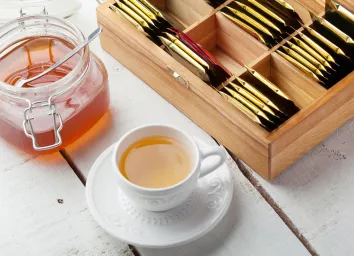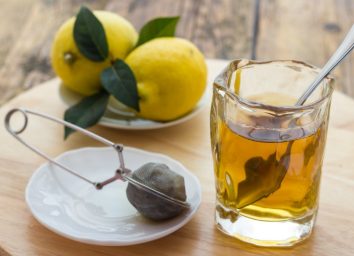The Best Teas for Detoxing Your Body, According to Experts

If your BS alarm blares when you hear the term detox, it’s not due to faulty wiring; the term is controversial and often used in association with fast weight loss.
Clinically, detoxification is defined by The Centers for Disease Control and Prevention’s Agency for Toxic Substances & Disease Registry as “the process of removing a poison or toxin or the effect of either from an area or individual.”
But somewhere between speedily shedding pounds and purging poison is an achievable form of detox—it involves supporting your body with nutrients that help it perform the natural work of eliminating useless (or harmful) waste. “The truth is, our bodies are detox champs if we set them up for success,” says Elissa Goodman, a holistic nutritionist and cleansing expert.
Teas can be soothing delivery systems for those vital nutrients. One quick tip: Drink your tea warm. According to Jessica Bippen, RD, drinking warm tea may help encourage bowel movements. (Yes, pooping is a detoxification pathway!) “Warm liquid has been shown to stimulate the GI tract and promote motility,” Bippen once told Eat This, Not That!. “It’s also thought that icy-cold tea may slow down digestion by shrinking blood vessels surrounding the stomach.”
Before you plug the electric kettle in, heed the 20 worst detox tips of all time, and consult your doctor if you are pregnant or breastfeeding. Then, make yourself a cup of one of these cleansing brews:
Dandelion Tea
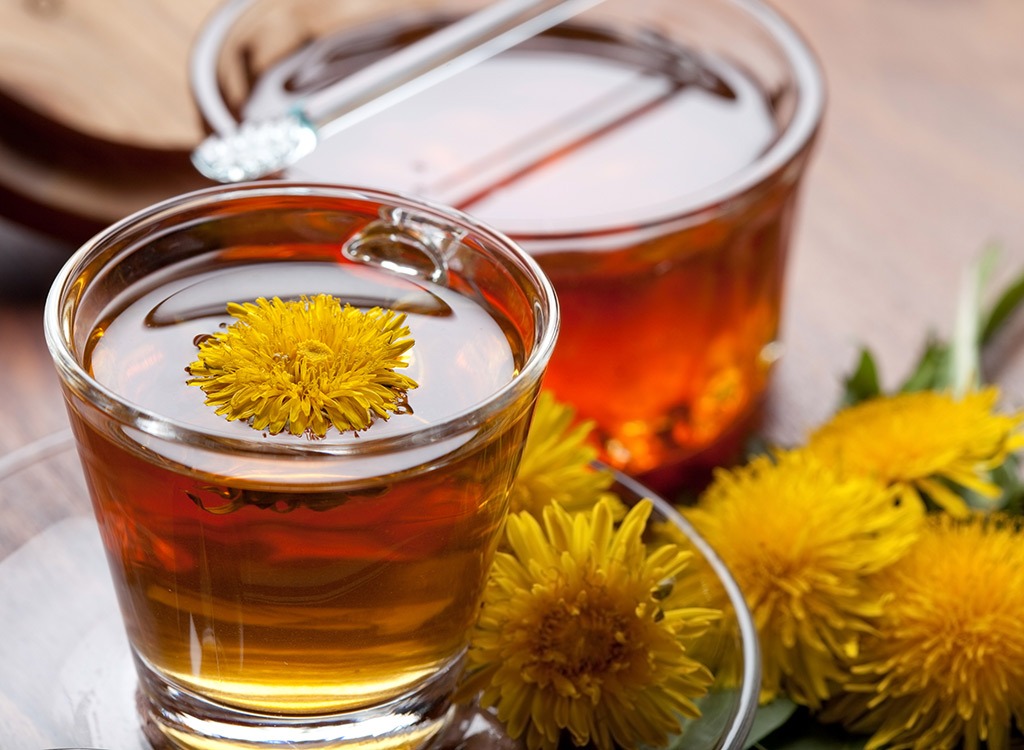
One means of eliminating toxins from the body is by peeing—and dandelion root promotes urination. “It is an amazing digestive aid that cleans the liver and kidneys,” says Keri Glassman, RD, founder of Nutritious Life, who suggests looking for these greens at farmer’s markets or—if you’re lucky—at your local grocery store if you want to make your own tea.
Not that ambitious? You can find dried sachets from Traditional Medicinals, Yogi, and many others.
Milk Thistle
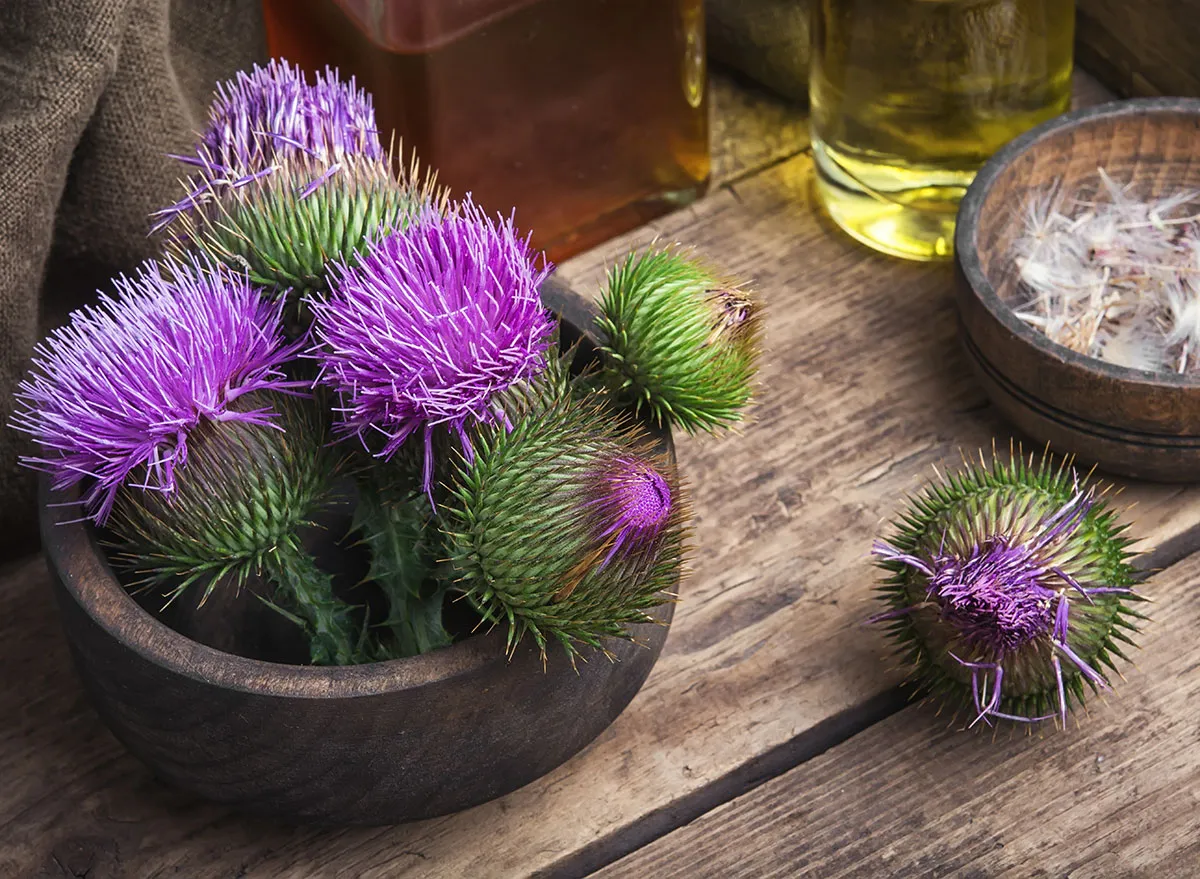
This strange brew doesn’t contain any dairy—the “milk” comes from the cuttings of the milk thistle plant (botanical name: Silybum marianum). Studies on milk thistle supplements have shown that they can reduce liver damage and inflammation, as well as aid cell repair.
Milk thistle has long (like 2,000 years long) been used as an herbal remedy to protect the liver; in modern times, it’s been touted as a hangover cure, though there’s little evidence to support that claim.
You won’t find milk thistle tea at every supermarket, but The Republic of Teas makes one with a citrus flavor.
Lemongrass Rooibos Tea
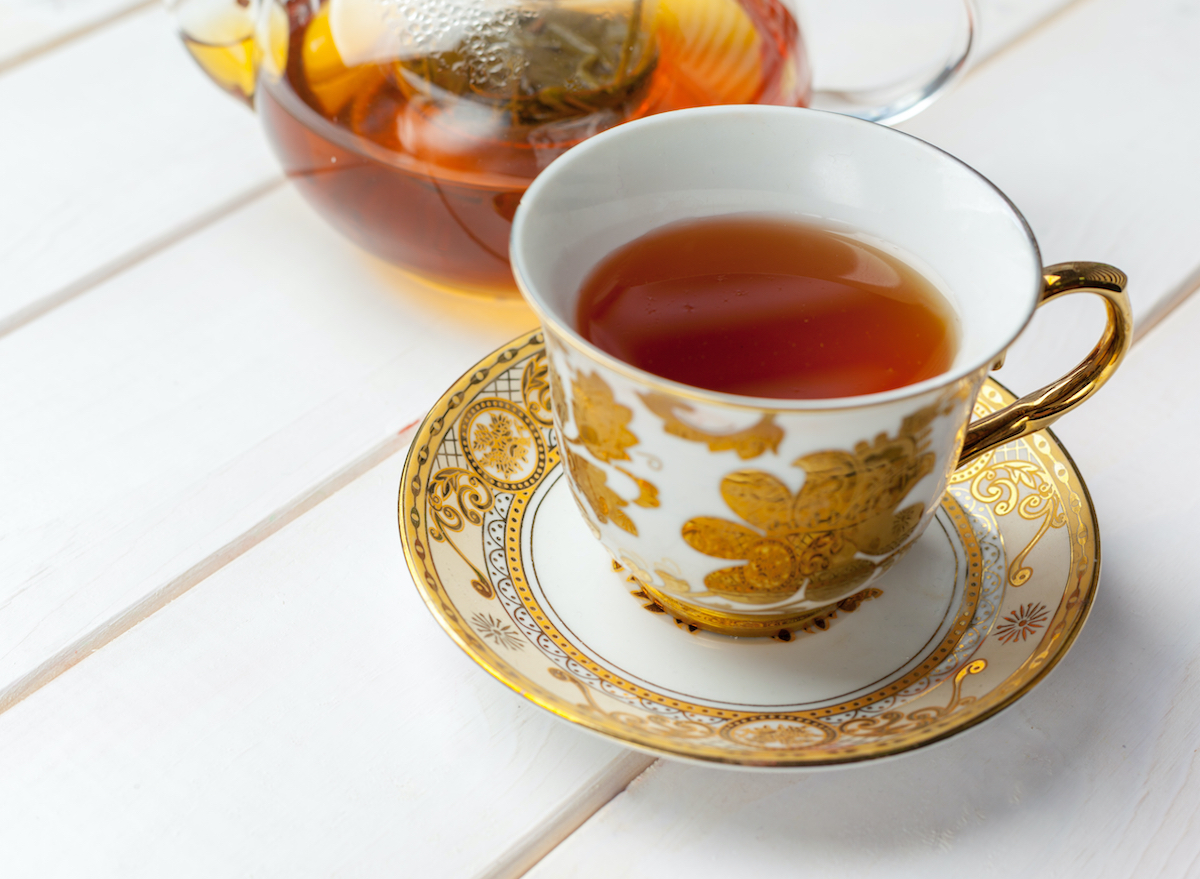
The reddish-brown version of rooibos comes from the fermented leaves of the South African red bush and is known for its powerful antioxidant properties—that alone makes it worthy of playing a supporting role in any detoxifying endeavor.
But, in some versions, like Sakara’s Detox Tea, it mingles with lemongrass, a stalky plant used in South Asian cuisines that has been shown to scavenge damaging free radicals from the body. Studies suggest that lemongrass tea acts as a diuretic. Like dandelion tea, it encourages urination, which can help clear the liver, kidneys, bladder, and pancreas.
One note of caution: “Diuretic, essential-oil containing plants (such as fennel and lemongrass) carry risk for those with kidney disease and are in fact contraindicated,” says medical herbalist Daniela Turley, founder of Urban Healing.
Fennel Tea
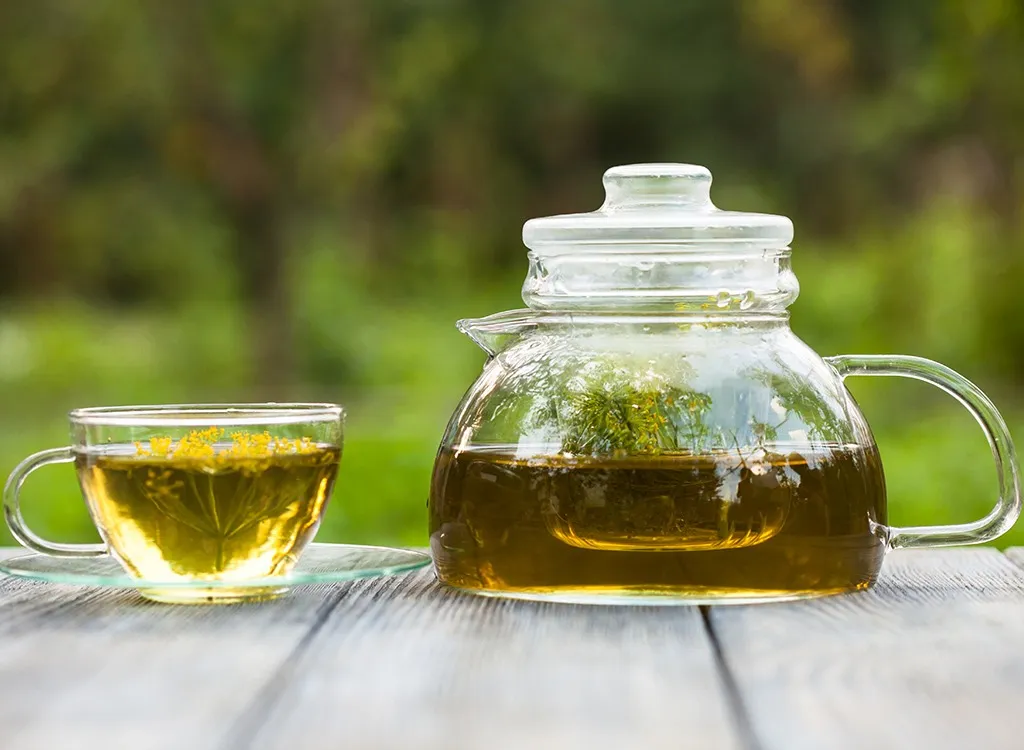
In Ayurvedic medicine, fennel is a go-to for its impact on the digestive system, which is foundational to health in Ayurveda. Used therapeutically to stimulate the appetite and digestive function, fennel tea (which has a licorice or anise flavor) can relieve constipation by relaxing your digestive muscles, thereby helping to cleanse your body and move toxins through (and out of) your system.
Given that, you may want to start with just a cup a day until you know how, um, intensely your bowels will react. In addition, studies show that fennel tea increases the antioxidant activity in your body and helps your kidneys and liver deal with oxidative stress.
In addition to fennel, ginger, cumin seeds, turmeric, cinnamon, and tulsi are all spices that are considered detoxifying primarily because of the heat they contain, says Ananta Ripa Ajmera, founder and CEO of The Ancient Way and the Director of Ayurveda for THE WELL. “Digestion is seen poetically as being similar to a fire in Ayurvedic medicine; warmer substances kindle that fire, and support burning of toxins, whereas cooler substances tend to extinguish it and allow toxins to remain in your body,” says Ajmera.
You can boil water with 1/4 teaspoon of any or all of the above mentioned spices for detox purposes. Banyan Botanicals has a detox tea blend incorporating all of these spices, as well as a great digestion promoting tea that would support detoxing. Pukka’s detox tea contains fennel, aniseed, and cardamom.
Cilantro or Parsley Tea
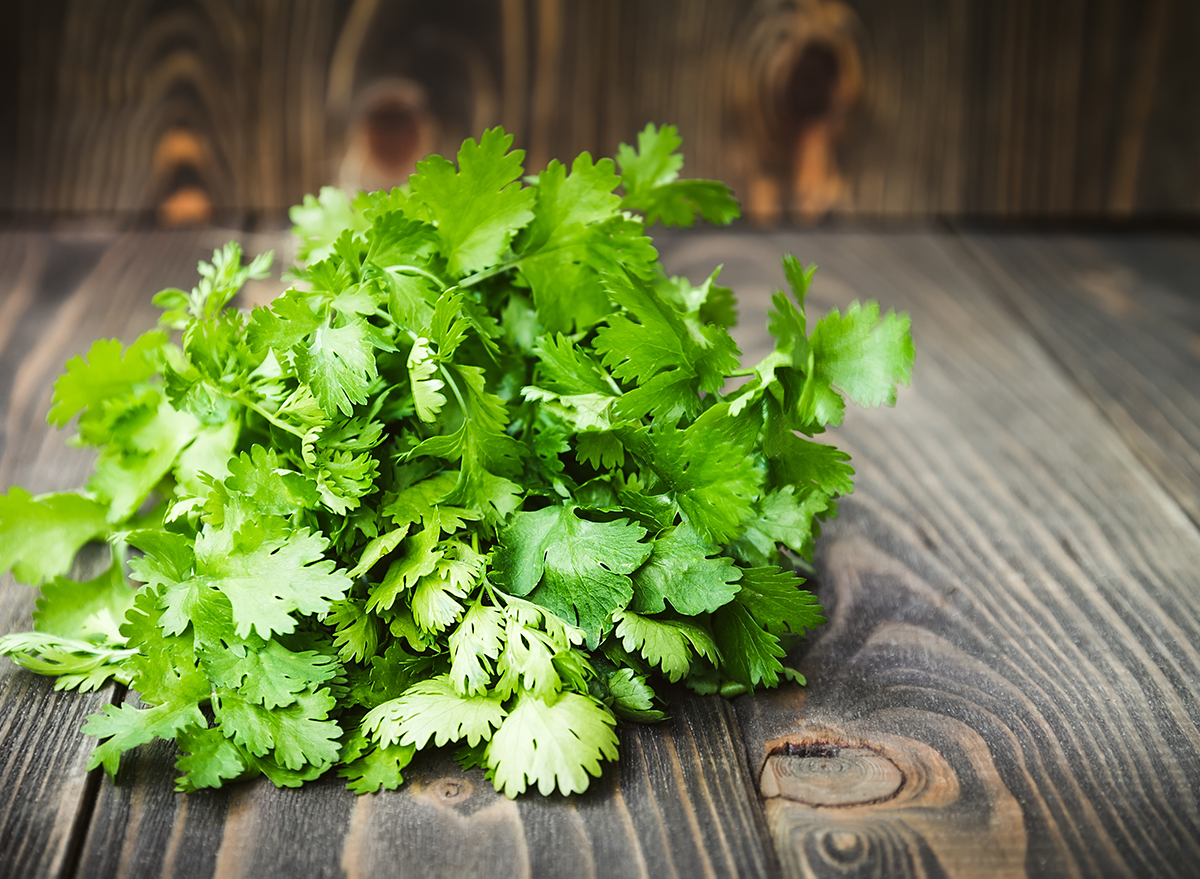
Obviously, all teas are made with water, which in and of itself is detoxifying because proper hydration helps your kidneys screen out harmful substances via water filtration. Making teas with herbs that are gentle diuretics boosts the benefit.
“Parsley and cilantro promote water elimination while nourishing kidneys and other detox organs,” says Goodman in this post.
Adds Glassman, “Parsley is a hard-working herb—it cleans odors from your breath after a garlic-heavy meal (which is why you sometimes see it as a plate garnish at restaurants) at the same time it cleanses your body.”
Buddha Teas sells parsley leaf tea, and TerraVita makes a cilantro (also called coriander) tea. Or, you can make your own using fresh herbs like this.
Turmeric Ginger Tea
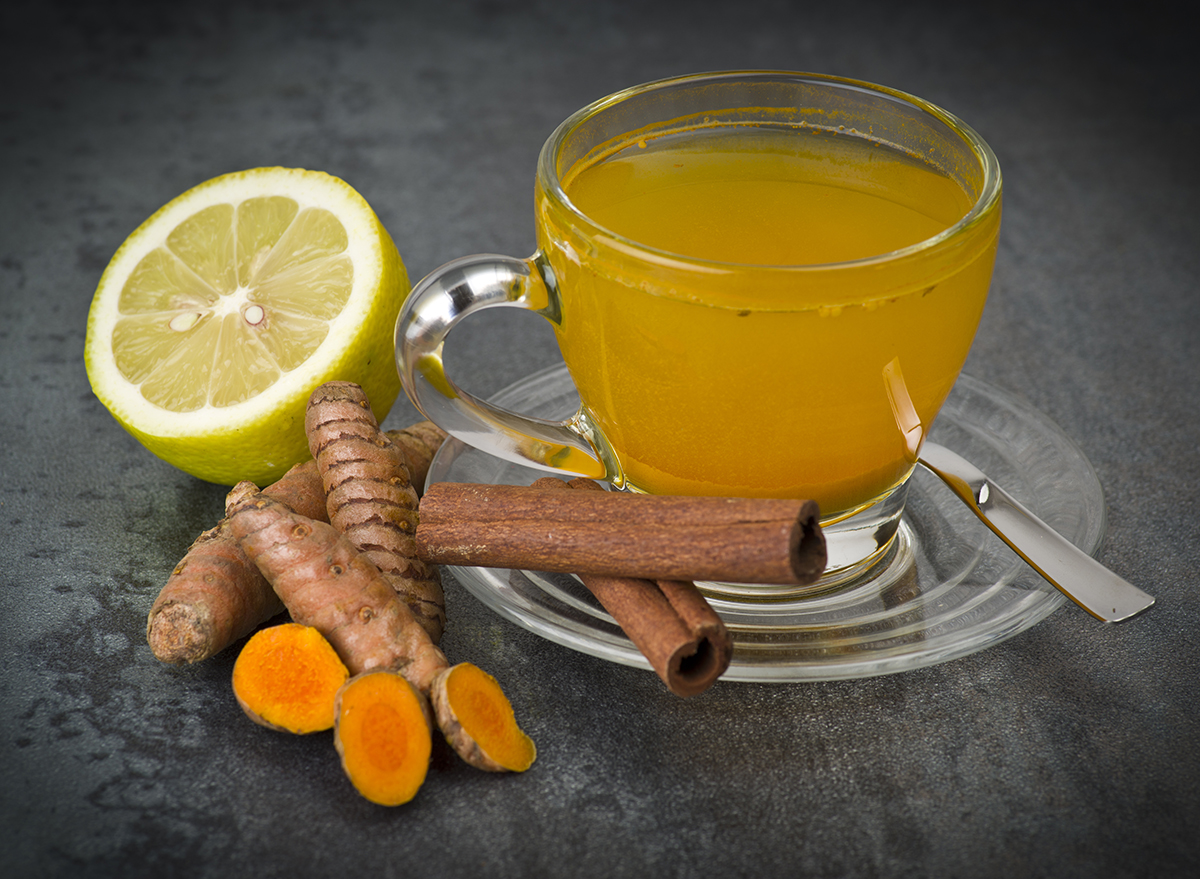
Turmeric owes its reputation as a health star to curcumin, an active ingredient that helps the enzymes that flush out toxins and contains antioxidants that repair liver cells. It also assists the liver in detoxing metals, while boosting bile production. “Turmeric tea is beneficial for preventing liver damage, as it stimulates liver enzymes to remove toxic metabolites,” says Turley.
Rishi’s Turmeric Ginger is a fan favorite; another vendor is FGO.
Nettle Tea
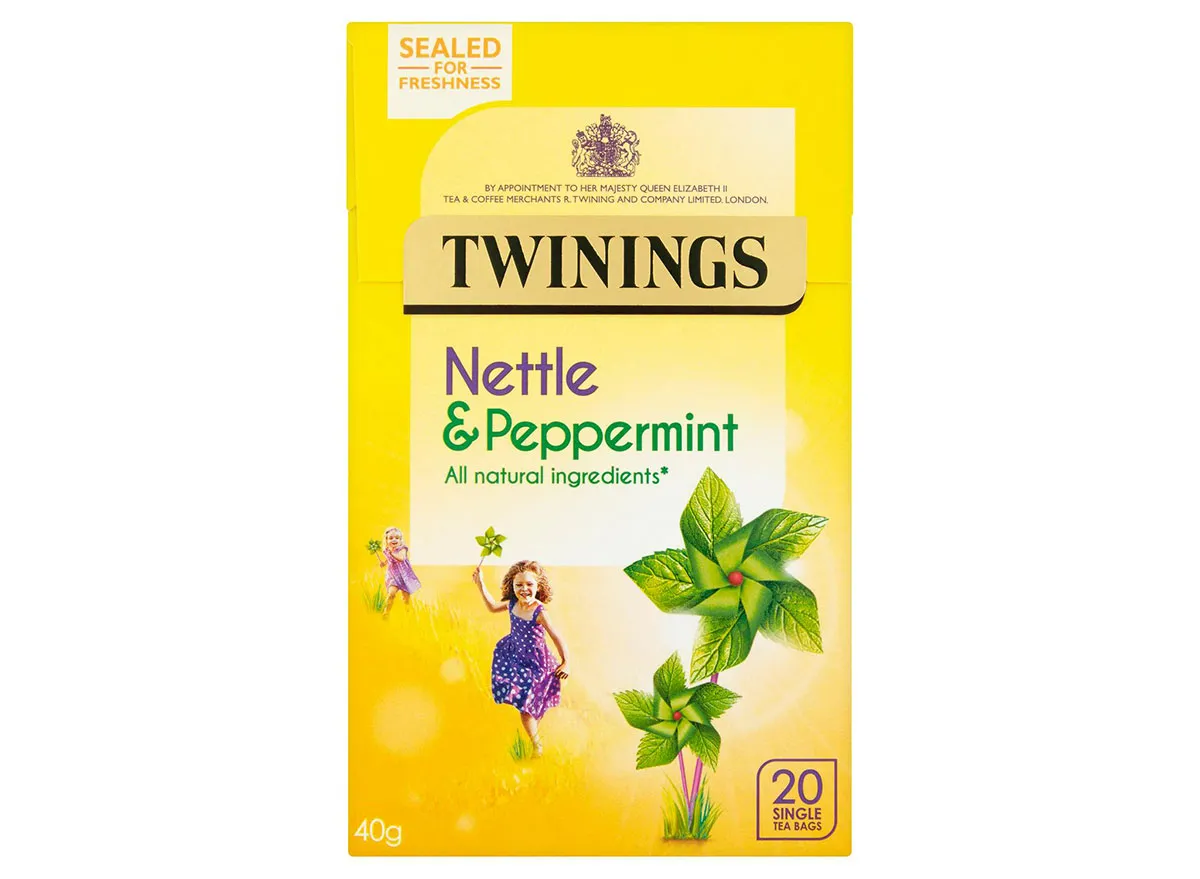
Nettle tea comes from the stems, roots, and heart-shaped leaves of the nettle plant—also called “stinging nettle” because of the tiny hairs on the stems that cause a stinging sensation when touched. But don’t fret, drinking nettle tea won’t hurt! Nettle is packed with polyphenols which may help prime the body to fight inflammation and inflammatory diseases. It gently stimulates the lymphatic system, which can enhance the excretion of wastes through the kidneys. In herbal medicine, it’s often used to treat urologic issues, such as urinary tract infections, for its ability to flush out harmful bacteria.
Green Tea

Green tea has long been touted as a powerful health elixir—and for good reason! It contains a potent antioxidant called epigallocatechin-3-gallate (EGCG), which studies show may help prevent the growth of cancer cells in the liver and protect against liver disease. Green tea also contains L-theanine, an amino acid that’s used to produce another important inherent antioxidant, glutathione.
Blended Teas
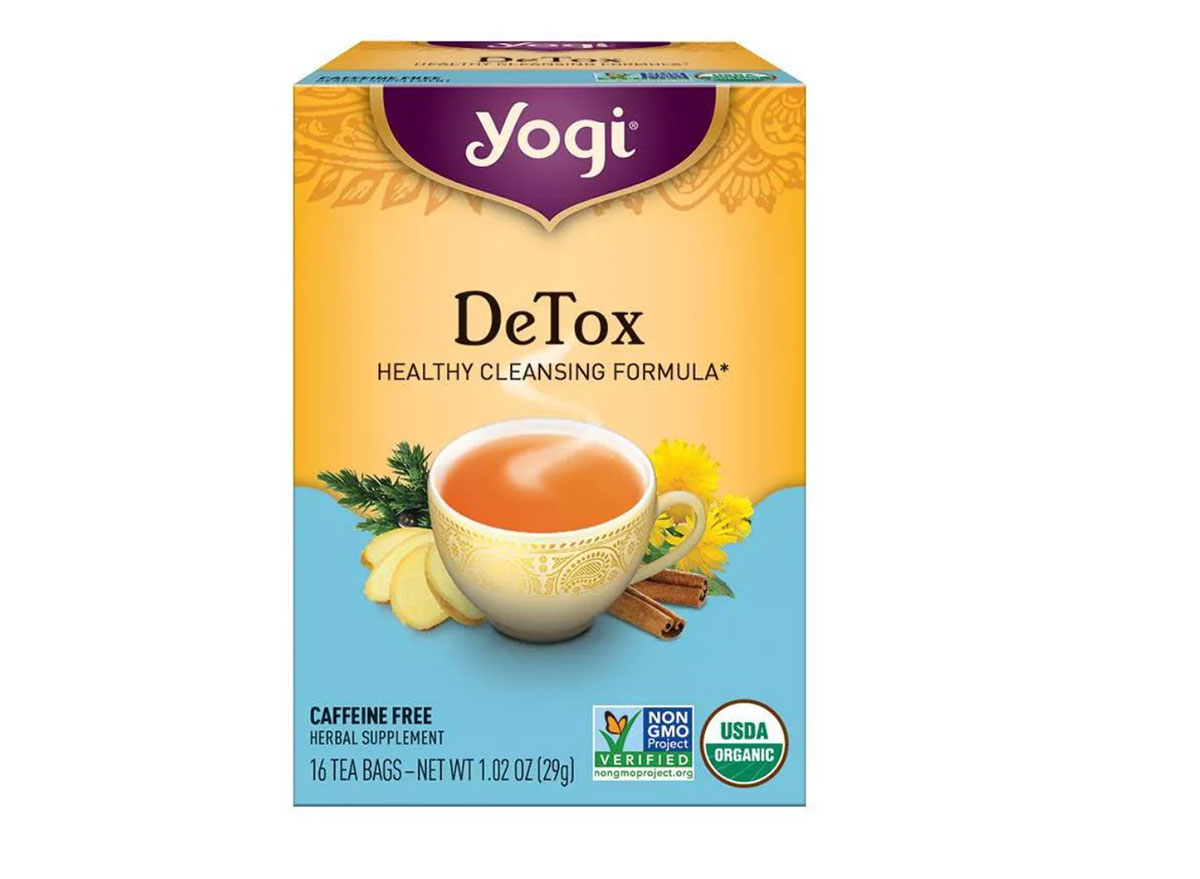
Many teas on the market blend ingredients to make their detox recipes more potent. The Republic of Tea’s Get Clean Tea has rooibos, dandelion, milk thistle, and more; Gaia Herbs Cleanse & Detox Tea combines rooibos, burdock root, peppermint, lemon, and aloe vera; Yogi Tea Detox Tea packs a serious detox punch with “trikatu,” a traditional Ayurvedic spice blend of ginger, black pepper, and long pepper with cinnamon, cardamom, dandelion and burdock root to help support healthy cleansing.
More Tea Stories on Eat This, Not That!
• The #1 Best Way to Make Iced Tea Perfect Every Time
• Surprising Side Effects Tea Has On Your Immune System, Says Science
• 4 Best Calming Teas for Anxiety, According to Science
• One Major Side Effect of Drinking Tea, Says New Study
• Drinking Green Tea May Prevent This Leading Cause of Death
